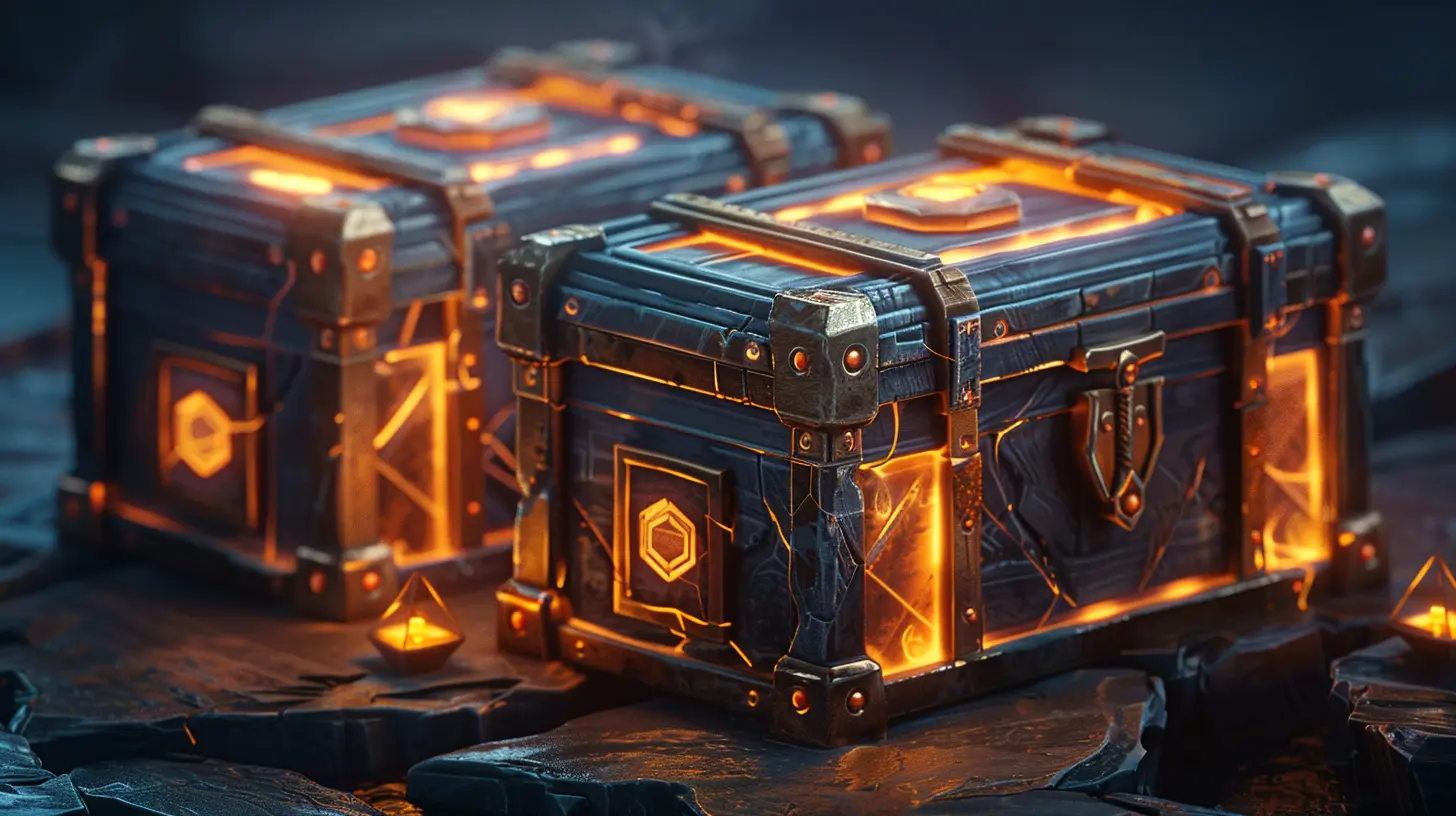Loot Boxes and the Age-Old Debate Over Pay-to-Win
9 October 2025
Gaming has come a long way, hasn’t it? From those humble days of pixelated characters jumping over barrels and dodging fireballs to today’s immersive, hyper-realistic virtual worlds that suck us in for hours on end. But with all that progress, it seems we’ve picked up some baggage along the way. And no, I’m not talking about your backlog of unplayed games (though that’s a problem too). I’m talking about loot boxes and the never-ending back-and-forth about pay-to-win mechanics.
So, why do these loot boxes spark such fiery debates among gamers? Are they harmless add-ons providing a little extra fun or a slippery slope into the dark abyss of unfair advantages and financial ruin? Let’s dig in and see what this fuss is all about. 
What Are Loot Boxes, Anyway?
If you’ve been living under a rock—or maybe just skipping all those free-to-play games—loot boxes are virtual "containers" or "crates" that you can purchase (or sometimes earn) in games. Think of them like digital goodie bags. They’re packed with randomized rewards, ranging from cosmetic items like skins and emotes to game-changing equipment or power-ups.It’s a bit like buying a pack of trading cards. You could score something rare, or you could end up with five duplicates of the same bland card you’ve already seen a hundred times. And, of course, the thrill lies in not knowing what you’ll get until you crack it open. Sounds harmless enough, right?
Well, here’s the rub: you often have to pay real money for these loot boxes. And that’s where things start to get… let’s say, controversial. 
Pay-to-Win: The Elephant in the Room
Here’s the thing. Nobody minds paying for a game they enjoy. DLCs, expansions, cool skins—sure, take my money. But when a game gives players the ability to buy better gear, stats, or abilities through loot boxes, that’s when we hit the dreaded pay-to-win territory.Imagine this: you’re sweating bullets in an online multiplayer match. You’ve spent hours grinding, leveling up, and honing your skills. Then along comes some player who hasn’t put in even half the effort but is rocking maxed-out weapons and armor—because they dropped a fat stack of cash on loot boxes. Sound fair? Nope, not one bit.
Pay-to-win mechanics can feel like the ultimate betrayal, especially when you’ve invested your valuable time and effort into a game. It’s like spending months training for a marathon, only to get passed by someone zooming along on a scooter they bought at the last minute. 
But Wait, Are Loot Boxes Really All Bad?
Now, hold up—let’s not be too quick to demonize loot boxes entirely. Not all of them fall into the pay-to-win category. Some developers design loot boxes purely for cosmetic upgrades—stuff like character skins, weapon wraps, or cool emotes. These don’t give players any strategic advantage, just a bit of extra pizzazz.Take Fortnite as an example. The game thrives on selling cosmetic items, but everyone plays on a level field when it comes to actual gameplay. Whether you’re rocking a banana suit or default skin, you’re just as likely to get sniped.
Plus, for some players, opening loot boxes is genuinely fun. It’s the same reason people love buying lottery tickets or spinning a roulette wheel—it’s that dopamine hit, that rush of excitement when you think, Maybe this time I’ll get lucky.
So, yeah, loot boxes aren’t inherently evil. But let’s be real—they do walk a fine line, especially when money gets involved. 
The Ethics of It All
Okay, here’s where things get murky. At what point does providing optional loot boxes turn into exploiting players?One big concern is how loot boxes operate a bit like gambling. Developers know how to tap into that addictive "just one more try" feeling, encouraging players to keep spending in hopes of scoring something rare. Younger players, in particular, are especially vulnerable to this kind of manipulation.
Then there’s the issue of transparency. In some games, loot boxes are sold without players knowing the odds of getting specific items. You pour in your hard-earned cash, but you’re essentially blindfolded while spinning the wheel.
Thankfully, some progress is being made here. Countries like Belgium and the Netherlands have outright banned loot boxes in games, labeling them as a form of gambling. Meanwhile, other places are pushing for stricter regulations, such as requiring developers to disclose loot box probabilities or restricting their sale to minors.
Are Developers to Blame?
Now, before we grab our pitchforks and storm the gates of every major gaming studio, let’s think about this. Developers aren’t creating loot boxes just to mess with us. More often than not, they’re under immense pressure from publishers to generate revenue.Games—especially big, AAA titles—are expensive to make. We’re talking millions of dollars poured into development, marketing, and post-launch support. In this landscape, loot boxes and microtransactions have become a way to offset costs, especially for free-to-play games.
But does this excuse predatory practices? Absolutely not. However, it does remind us that the problem is more complicated than just “greedy developers.”
So, What Can Gamers Do About It?
First off, let’s agree on one thing: our wallets are our most powerful weapon. If a game’s loot box system feels exploitative or unfair, don’t spend money on it. Boycott it, give it bad reviews, make some noise on social media—whatever it takes to send a clear message to developers and publishers.Next, stay informed. Pay attention to the business models of the games you support. Is your favorite studio doing right by its players, or does it feel like they’re milking you for every penny? If it’s the latter, maybe it’s time to rethink your support for future titles.
Lastly, push for better regulation. Gamers have already made huge strides in getting governments and industry watchdogs to take loot boxes seriously. Let’s keep up the pressure to ensure future gaming experiences are both fun and fair.
The Future of Loot Boxes
So, where do we go from here? Will loot boxes eventually fade into obscurity, or are they here to stay?Honestly, it’s tough to say. On one hand, the backlash against loot boxes and pay-to-win mechanics is forcing developers to rethink their strategies. Many studios are moving toward battle passes, a system that lets players unlock rewards by progressing through a set list of objectives.
On the other hand, as long as loot boxes remain profitable, there will always be companies willing to toe the line—or even cross it. The challenge moving forward will be finding a balance between keeping games financially viable for developers and ensuring players aren’t getting the short end of the stick.
For us gamers, the fight isn’t over yet. But hey, if there’s one thing we’re good at, it’s grinding our way to victory.
all images in this post were generated using AI tools
Category:
Loot BoxesAuthor:

Pascal Jennings
Discussion
rate this article
1 comments
Hayden Erickson
Loot boxes blur the line between skill and spending, raising ethical concerns in gaming. Striking a balance between monetization and fair play is crucial for developers.
October 9, 2025 at 3:10 AM

Pascal Jennings
I completely agree; finding a fair balance between monetization and skill is essential for maintaining integrity in gaming.


